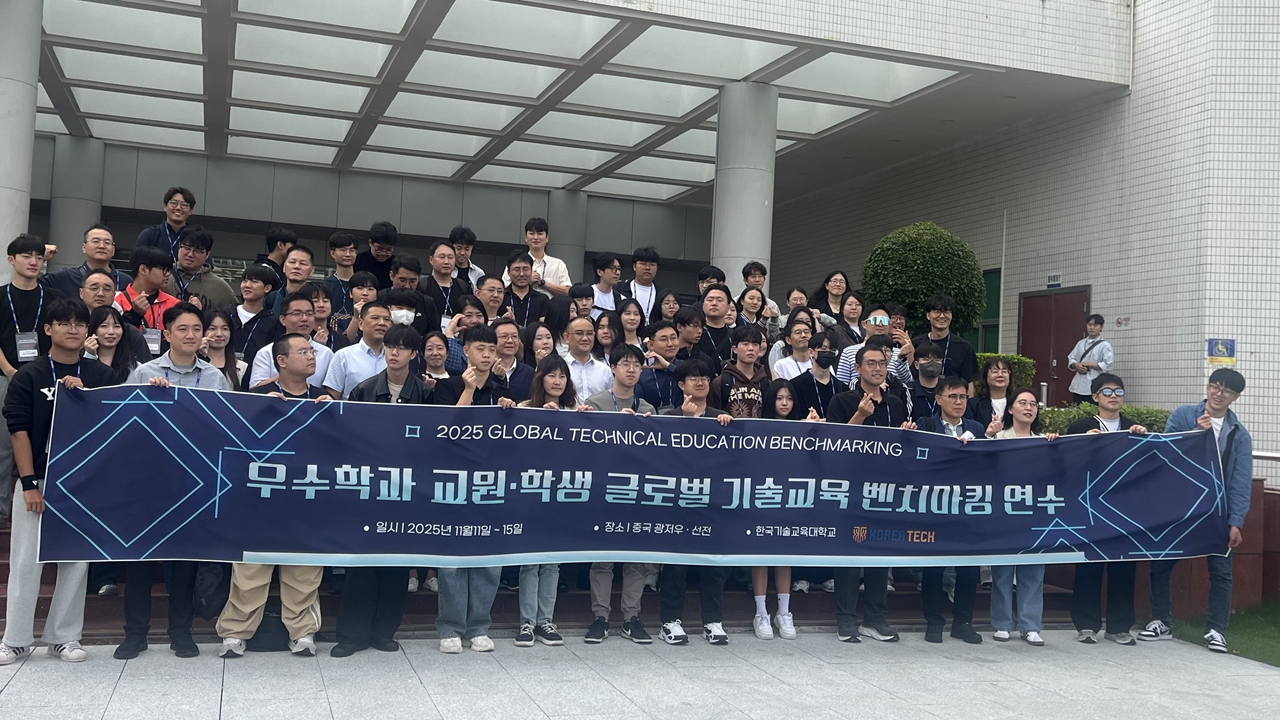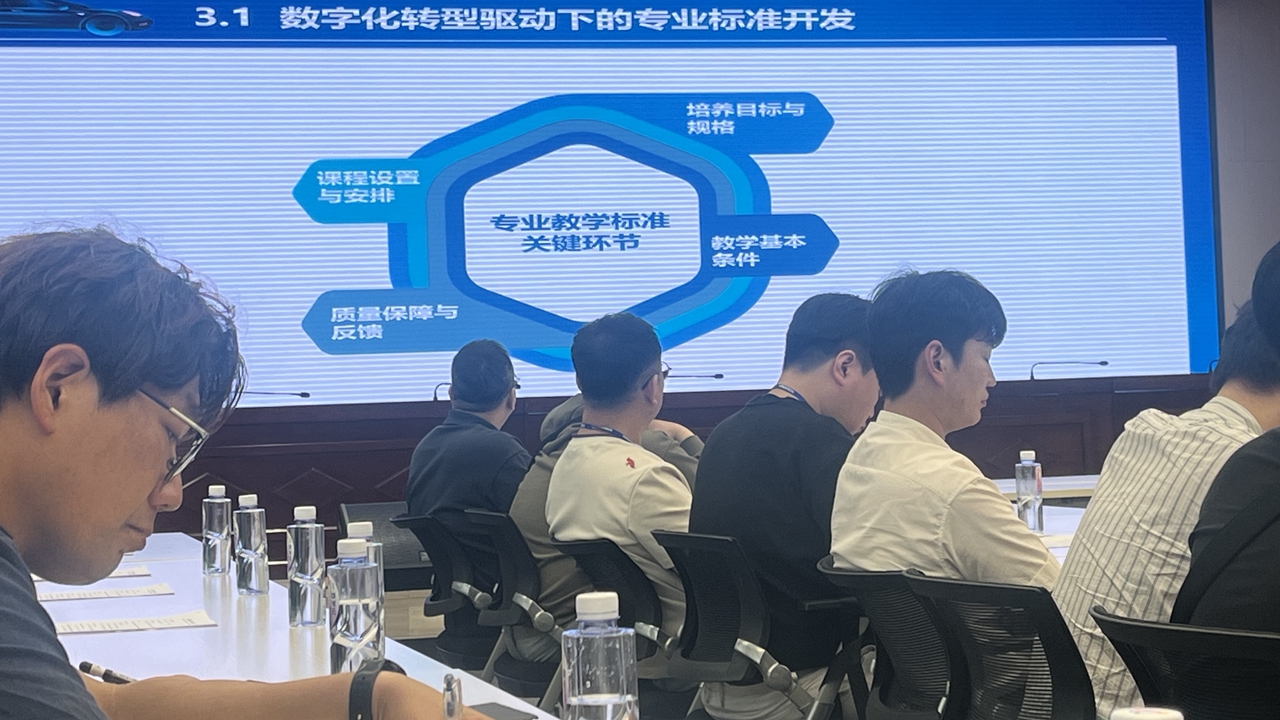SZPU shares education insights with S. Korean delegation
Writer: Wei Jie | Editor: Zhang Chanwen | From: Original | Updated: 2025-11-18

Members of the South Korean delegation pose for a group photo during their visit to Shenzhen Polytechnic University last week. Photos by Claudia Wei
A higher vocational education delegation from South Korea visited Shenzhen Polytechnic University (SZPU) last week to learn from SZPU’s successful practices and deepen cooperation in vocational education between the two sides.
After a brief welcome ceremony at the BYD Application Technology College on SZPU’s Xilihu Campus, visiting teachers and students from South Korean vocational senior high schools were treated to a drone performance at Universiade Square programmed by SZPU students. When several dozen drones landed precisely in their assigned positions at the end of the show, the audience erupted in thunderous applause.
Led by Korea University of Technology and Education (KoreaTech), the delegation of more than 80 educators represented 12 major disciplines, including artificial intelligence (AI), Internet of Things (IoT) and drone technology. They were selected from among 85 key disciplines identified by South Korea’s Ministry of Employment and Labor for the country’s talent-development program for high school graduates in emerging industries.
The South Korean delegation said that their talent program aimed to integrate academic education with specialized, project-based training programs while strengthening teachers' professional skills in emerging technologies. They added that the program’s objectives closely align with China’s current drive to build a modern vocational education system, particularly its emphasis on industry-education integration and school-enterprise cooperation.
SZPU, founded in 1993 in Shenzhen, has grown into a leading institution in China’s higher vocational education sector following years of development. It has more than 30,000 full-time students enrolled across a wide range of project-based programs.
Wang Bingfeng, director of SZPU’s International Office, told the Korean guests at a teacher-exchange meeting that SZPU reports a 98% graduate employment rate, which he attributed to deeper industry-school integration and a project-driven education model.

South Korean delegates take notes during a vocational education exchange at Shenzhen Polytechnic University, where key standards for digital transformation in professional training were discussed.
The College of Automotive and Transport Engineering of SZPU provides a successful model in practice. According to Cui Hongwei, vice dean of the college, students enrolled in the BYD Application Technology College have access to a more than 3,000-square-meter BYD factory for education, internships, and enterprise projects as well as a 6,000-square-meter on-campus training base. Pingshan-based BYD is a world-leading new-energy vehicle manufacturer.
“Roughly 25% of the faculty are BYD engineers, who share first-hand industry experience in class with our students. The students can undertake a six-month internship at BYD during their final year of study,” Cui said at the meeting, noting that BYD also sponsors joint R&D projects carried out by BYD engineers and SZPU faculty.
Such close school-enterprise cooperation and education-industry integration are key to addressing the persistent disconnect between talent cultivation and market demand.
According to Cui, the College of Automotive and Transport Engineering, founded in 2004, has trained more than 5,500 graduates who have gone on to work for major enterprises such as BYD, DJI, Huawei, Shenzhen Metro Group, and MTR Corporation (Hong Kong) over the past two decades.
The successful operation of the BYD Application Technology College drew strong interest from the visiting Korean educators during the meeting. They raised practical questions about forming partnerships with established enterprises and about relevant qualifications and certifications, among others.
The visiting students called several hands-on sessions eye-opening, including familiarization with new-energy vehicle (NEV) structure cognition, UAV virtual simulation training, formula racecar introductions and driving experiences, and smart-car demonstrations and interactive exercises.